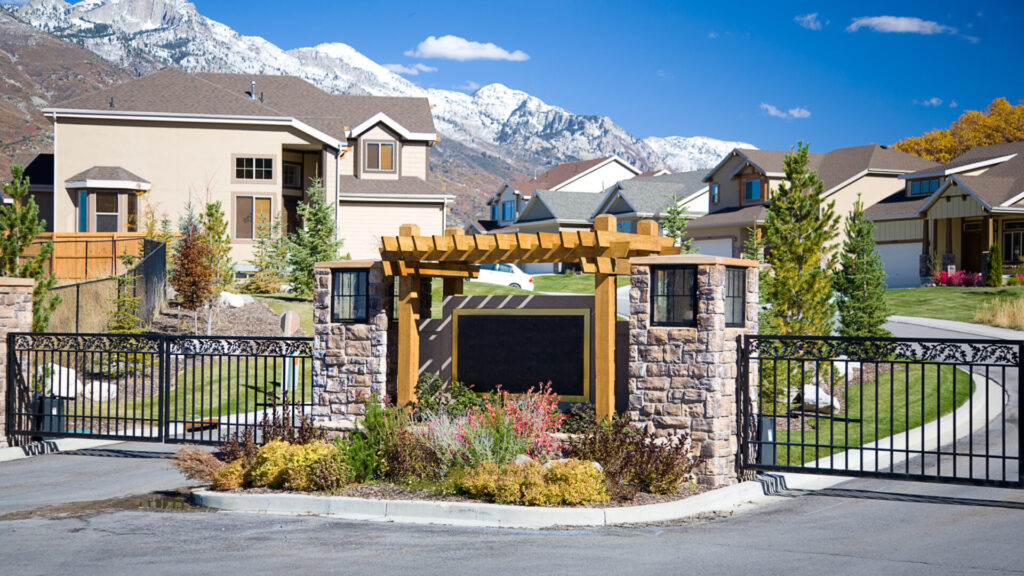|
|
Are you looking for ways to diversify your investment portfolio? Then consider real estate investing, a popular way to build wealth and generate passive income. One option that has gained popularity in recent years is buying rental properties in gated communities.
But is it a good idea? This article will explore the benefits and drawbacks of investing in rental properties in a gated community and whether it’s a smart choice for real estate investors.
Benefits of Investing in Gated Community Properties
The idea of a gated community property to invest in can offer many benefits. Consider the top three benefits it can offer.
Security
One of the main reasons why people choose to live in gated communities is for added security. It is a significant benefit for both renters and landlords. As a landlord, you can advertise your rental property as being in a safe and secure community.
It can attract more tenants and allow you to charge higher rent. Plus, with gated communities often come extra security features.
Amenities
Gated communities often offer a variety of amenities, such as pools, fitness centers, and parks. These amenities, which you can view here for more information, can be a significant selling point for renters, especially those with families.
As a landlord, having access to these amenities can also help you attract more tenants and command a higher rent.
Property Management
Gated communities often have a property management team who maintains the community. They also enforces the rules and regulations.
This can be a significant help for landlords, because it removes many of the day-to-day responsibilities of managing a rental property.
Drawbacks of Investing in Gated Community Properties
Investing in properties within a gated community, while potentially a safe investment, also comes with some drawbacks. Here are some of them.
Higher Costs
Gated communities often have higher HOA fees and property taxes. This can really eat into your profits as a landlord.
Also, if you need to make repairs or upgrades to your property, you may need to follow specific costly rules and regulations set by the community. The paperwork you need to file to get approval can also extend your timelines for doing repairs.
Of course, if you tenant violates any of the community rules, you will also get billed for these violations. Common violations are parking vehicles in unapproved spaces, not maintaining the yard in well kept condition, and installing lighting or cameras that haven’t been approved by the HOA.
Limited Pool of Tenants
While security and amenities can be major selling points for renters, they may only appeal to some. Many renters will prefer to live in more urban or diverse neighborhoods. Or, they may want to avoid paying the higher rent associated with gated communities.
It means that you may have a more limited pool of tenants to choose from. This can make finding renters harder and may result in more extended vacancy periods.
Rules and Regulations
Gated communities often have strict rules and regulations that all residents must follow. It can benefit landlords who want to ensure their property is well-maintained and that their tenants are respectful of neighbors.
But, it can also be a drawback if you prefer more flexibility as a landlord.
For example, you may not be allowed to rent your property to specific tenants, such as those seeking short-term leases. Or you may need to follow particular guidelines about advertising or showing your property.
To Be or Not To Be in A Gated Community
So, is investing in rental properties in a gated community a good idea? As with many things in real estate investing, it depends on your individual goals and preferences.
Investing in rental properties in a gated community could be wise if you value its benefits. On the other hand, consider other properties if you prefer more flexibility and a larger pool of potential tenants.
Of course, it’s important to factor in the HOA fees as well. Plus, you’ll want to assess if the community has adequate financial reserves set aside for major community expenses that could arise, such as roads, gates, and amenity repairs. If they don’t, you could get an unexpected “capital call” that could hurt your bottom line.
For more tips and guides, explore the real estate section of this site.
